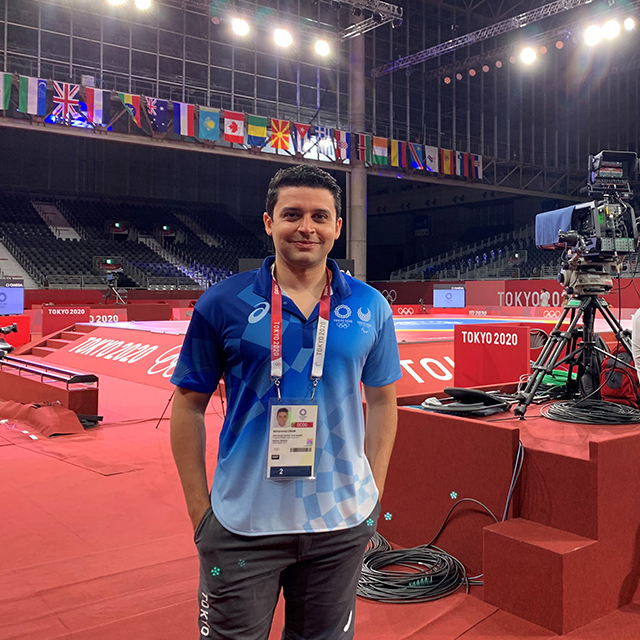The Johns Hopkins Sports Medicine and Rehabilitation Program serves athletes — from professionals to weekend warriors — and addresses the needs of people who need to or simply want to maintain active lifestyles.
“Sports medicine is a field dedicated to anyone who wants to stay active,” says Mo Emam, director of the Sports Medicine Fellowship Program and assistant professor of physical medicine and rehabilitation at Johns Hopkins. “We are a multidisciplinary practice that draws upon the expertise of a variety of disciplines across sports medicine to tailor the best approach for each patient.”
That approach includes not just treatment of injuries, but also injury prevention and performance enhancement. “We don’t just treat a particular injury and forget about it. We develop a holistic plan geared to the patient’s unique physical needs,” says Emam.
Such personalized treatment is a defining feature of the Johns Hopkins Sports Medicine and Rehabilitation Program. For example, Emam and his colleagues provide individualized care for runners, including gait and balance analysis, assessment of musculoskeletal issues, and recommendations for retraining approaches to ensure patients return to their sport safe and injury-free. The program also offers comprehensive care to accommodate the unique needs of dancers, musicians and other performing artists.
The spectrum of expertise within the Sports Medicine and Rehabilitation Program is unusually broad: It encompasses physical and occupational therapy, , and concussion medicine.
“From start to finish, we offer patients collaborative and cohesive care,” says Alexis Coslick, assistant professor of sports medicine and rehabilitation at Johns Hopkins. She is developing a program designed to meet the needs of female athletes — young or old, competitive or simply wanting to keep healthy and active. Its mission mirrors that of the rest of the sports medicine practice: to develop a comprehensive yet streamlined plan for patients that addresses all their health needs.
A key feature of sports medicine at Johns Hopkins is responsiveness: “In sports medicine, patients often need to be evaluated urgently, and we recognize that’s important,” says Coslick. “Our providers are available and accessible.”
In addition to timely care, Johns Hopkins providers know well the demands of competitive sports. Emam attended the Tokyo Olympics this past summer as a volunteer physician. “The Olympics is the biggest stage in the world, and to collaborate with clinicians from other countries was truly very special,” said Emam. “It was really inspiring to be there and take care of such dedicated athletes.”

